|

Synopsis:
A devout Catholic girl (Jennifer Jones) in 19th century France sees a vision of a beautiful woman (Linda Darnell) in a grotto, and soon the entire town is transfixed by Bernadette’s visits with “the beautiful lady” (presumed to be the Virgin Mary). Among those who remain at least temporarily skeptical of Bernadette’s visions are her hard-working mother (Anne Revere), a cynical nun (Gladys Cooper), the local priest (Charles Bickford), a doctor (Lee J. Cobb), and a prosecutor (Vincent Price) determined to show that rationality will triumph over faith.
|
|
Genres, Themes, Actors, and Directors:
- Character Arc
- Charles Bickford Films
- Christianity
- Henry King Films
- Historical Drama
- Jennifer Jones Films
- Lee J. Cobb Films
- Linda Darnell Films
- Nuns
- Religious Faith
- Strong Females
- Vincent Price Films
Review:
Peary doesn’t review this adaptation of Franz Werfel’s novel in his GFTFF, but he discusses Jennifer Jones’ Oscar-winning performance in Alternate Oscars, where he writes: “As was surely the case with Best Actor winner Paul Lukas [in Watch on the Rhine], the Academy probably voted as much for her noble character [Bernadette] as they did for her.” He argues that Jones “wasn’t really given a chance to act” but rather “had to play every scene identically, with a kind, simple smile but little emotion”. He asserts that “the scenes themselves are repetitive, with her character refusing to alter her story despite interrogations by one stern person after another”, and notes that he much prefers Jones’s “later, hot-blooded temptresses.” I’m not in agreement with Peary’s assessment, instead concurring with DVD Savant’s statement that the film remains “an unimpeachably good production, with an intelligent script, fine direction and performances by actors that don’t behave as if told to, ‘hurry up and be enlightening.'” In terms of Jones’s performance, Bernadette is nothing if not steadfast: great pains are taken to establish this from the outset, and to emphasize the critical role it plays in what transpires. While Jones does consistently present a “kind, simple smile”, she also displays enough authentic emotion to carry us steadily through her travails, and we root for her the entire time. Indeed, Jones’s performance grounds this character-rich film, with Bernadette’s unwavering faith allowing or prompting countless others to experience profound shifts in their own assumptions and beliefs.
The lengthy film merits its 156 minute running time. We’re first introduced to Jones (part of a large family) living in extreme poverty, with her mother (Revere) and father (Roman Bohnen) scarcely knowing where the next meal will come from — thus making it all the more powerful when Bernadette’s visions bring about both a seeming-miracle of healing AND a gift of plentiful food from neighbors. Time is taken to establish Bernadette’s lack of spiritual knowledge in school (due to asthma-induced absences), which leads to her stern nun-teacher’s (Cooper’s) refusal to allow her to accept a beautiful “miracle card” from the local priest (Bickford); could Bernadette’s later vision be a manifestation of this simple gift taken so quickly and cruelly from her? We simply don’t know, and to the film’s credit, we’re not asked to necessarily believe one version of reality over another. The film’s final “act” come as a bit of a surprise, given that a logical denouement has already occurred — but we soon learn that a sideline involving Cooper’s character (who becomes unexpectedly pivotal to the plot) must be given time to mature, and that Bernadette herself
SPOILER ALERT
will be given more than a simple send-off to a nunnery. Price gives a notably powerful performance as Bernadette’s primary foil, who earnestly believes that “To wipe out an epidemic, you must eliminate the cause” — but the entire cast is uniformly excellent (as is Arthur Miller’s cinematography).
Redeeming Qualities and Moments:
- Jennifer Jones as Bernadette Soubirous
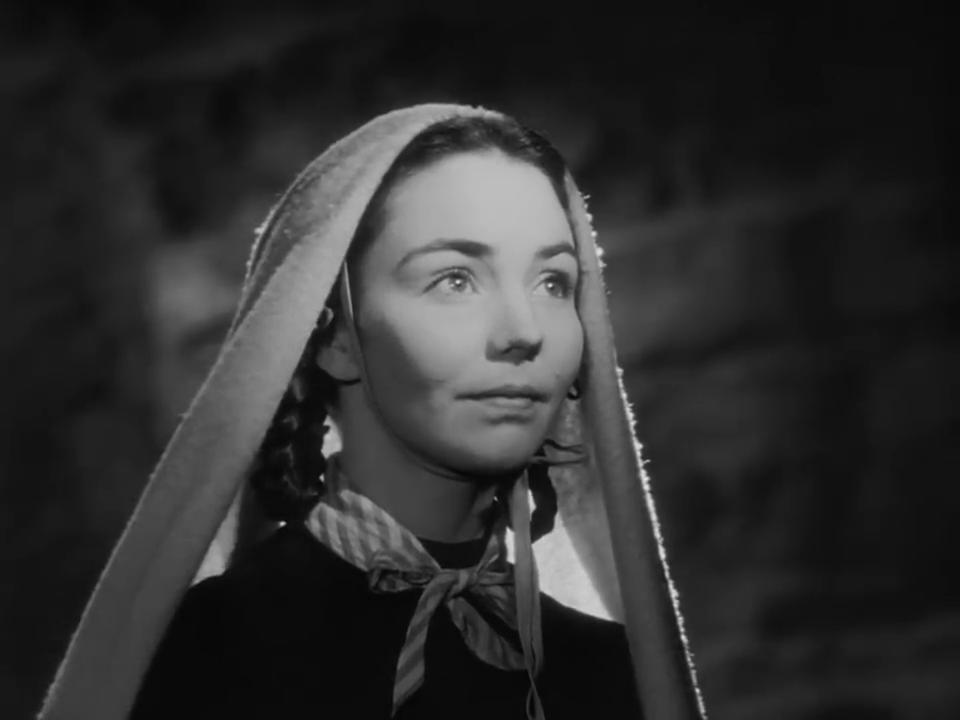
- Vincent Price as Prosecutor Vital Dutour
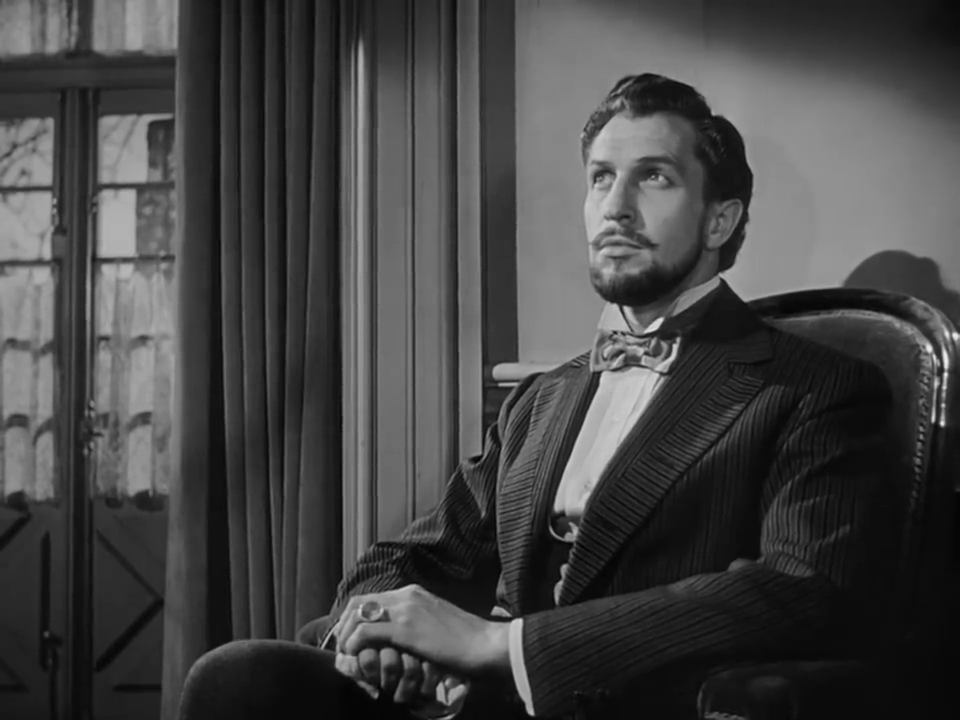
- Gladys Cooper as Sister Maria Theresa
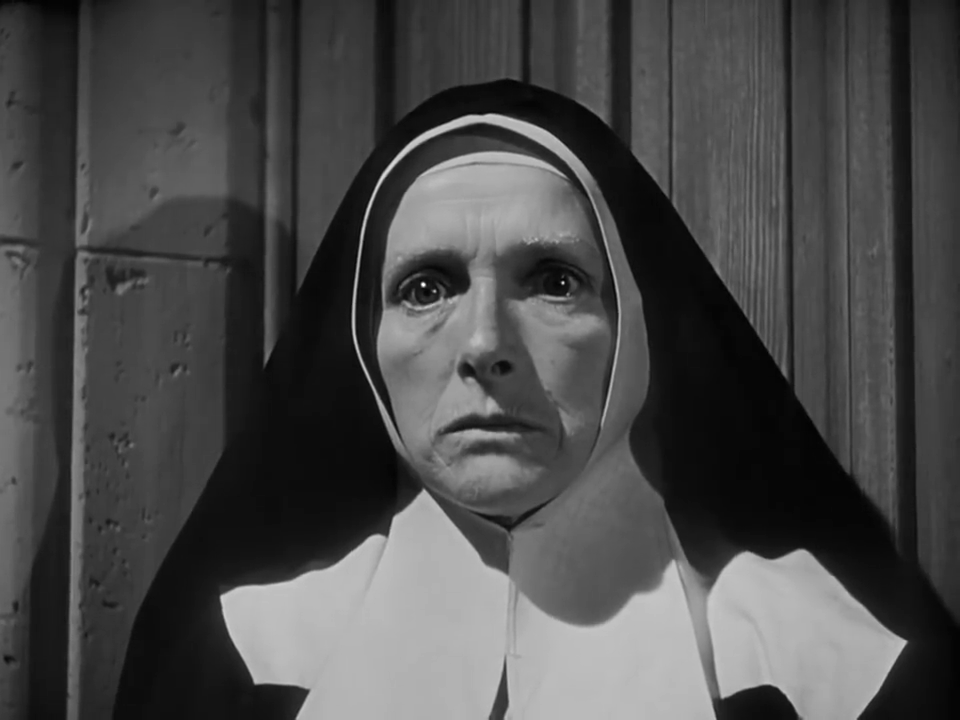
- Anne Revere as Louise Soubirous
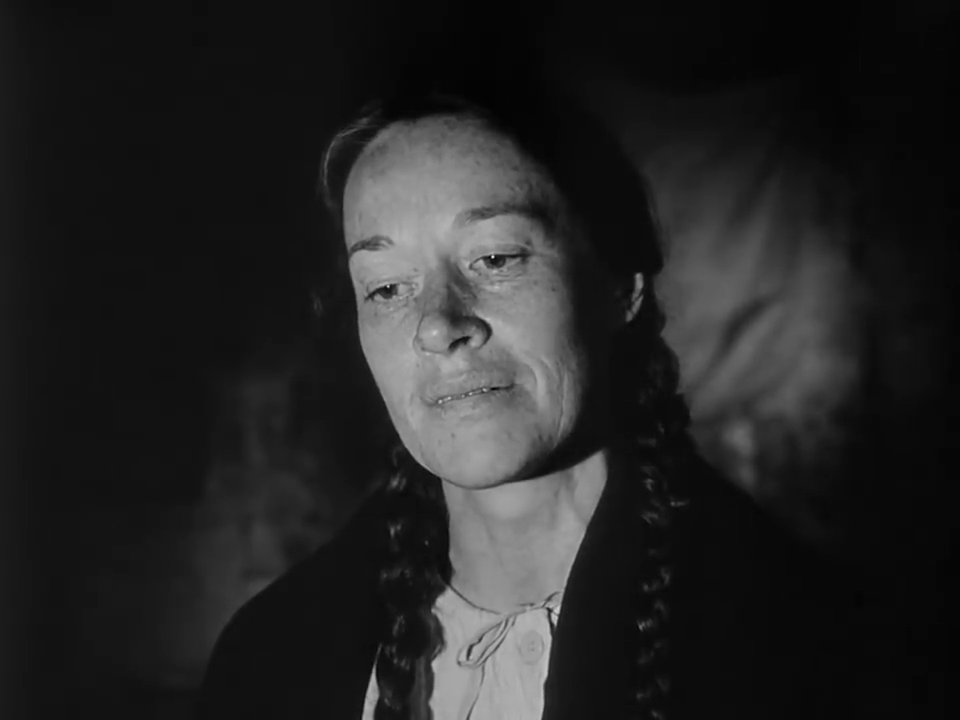
- Charles Bickford as Father Peyramale
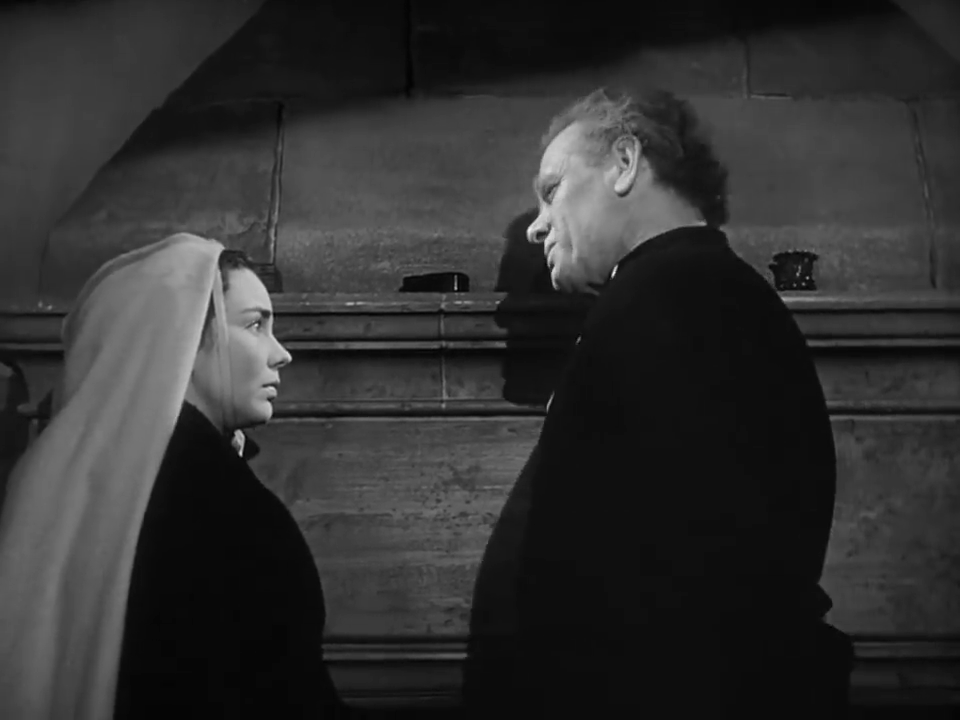
- Convincingly atmospheric sets
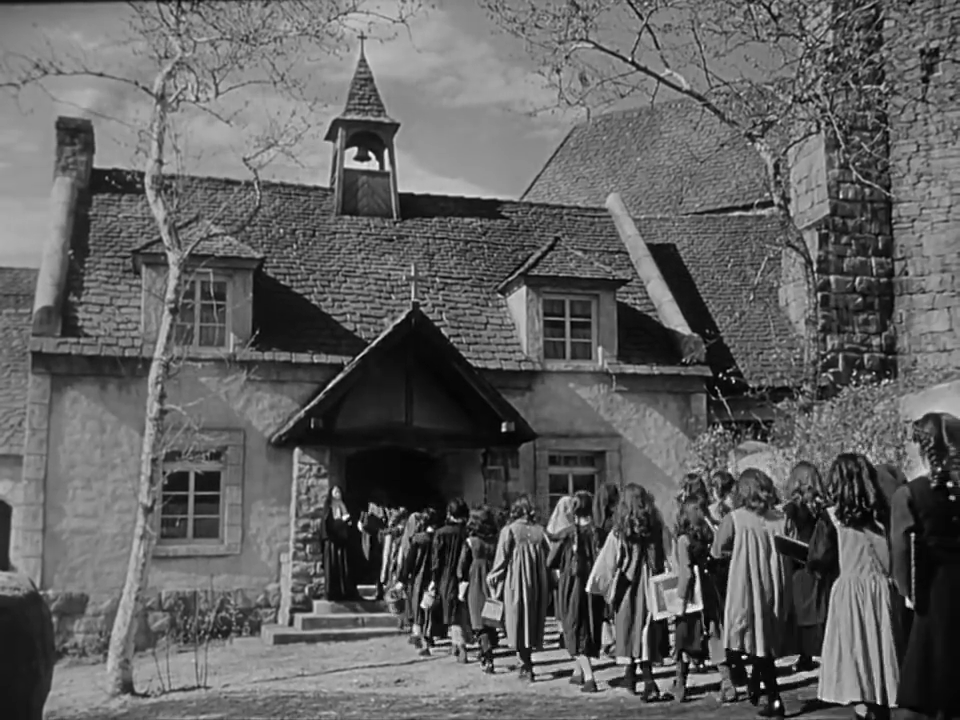
- Arthur Miller’s luminous cinematography
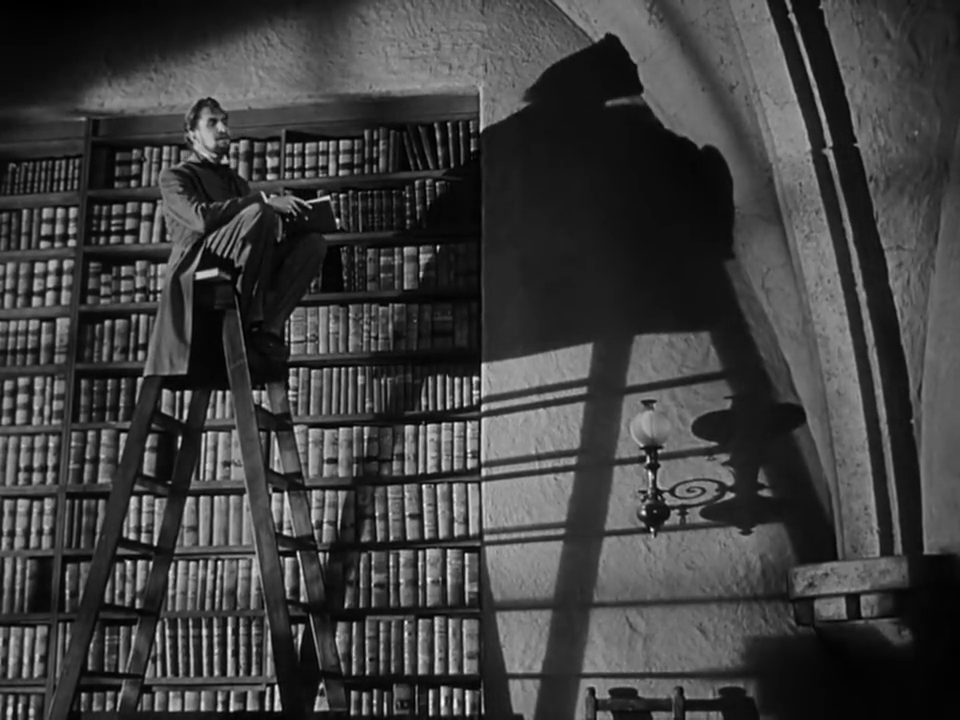
Must See?
Yes, as a fine spiritual drama.
Categories
Links:
|








One thought on “Song of Bernadette, The (1943)”
A once-must, for its place in cinema history. As per my post in ‘The ’40s-’50s in Film’ (01/16) (fb):
“Then wake up! … You are playing with fire, Bernadette.”
‘The Song of Bernadette’ (1943) [blu-ray]: I had totally forgotten that Jennifer Jones won an Oscar for this film. (Nominated for 12 awards, it took four.) 1944 was the first year of the Golden Globes, during which Jones took best actress, Henry King took best director, and the film took best picture. Among the other Oscar noms was the terrific Gladys Cooper – who, here, plays a role similar to the one she had played the previous year: Bette Davis’ mother in ‘Now, Voyager’. Cooper’s Marie-Therese is a real iron bitch of a nun, pretty much throughout – until…(well, no spoilers). (Also of note, giving sturdy performances: Anne Revere, Charles Bickford, Lee J. Cobb and Vincent Price.) I’m not wild about all of the Catholic dogma here about ‘needing to suffer until you can be chosen by God’. But, interestingly, ‘TSOB’ feels *less* like a religious picture than it does a film about phenomenon – and the war that springs up between people when some accept experiences that others cannot. (Somewhat, I suppose, as there are some who believe in UFOs and others who don’t.) George Seaton’s screenplay (based on a very popular historical novel that apparently only fudged some of the facts) is well-written, overall, with most scenes being very economic and to the point (the long-ish film moves rather quickly). A compelling film that doesn’t feel mawkish and sentimental, given the subject matter. And the blu-ray – though not astounding – is a nice upgrade in some of its detail and results in a sharp print.